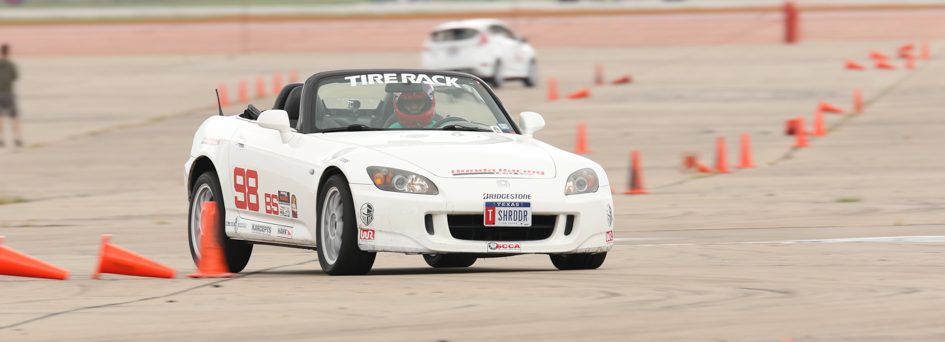Yes, this website is about driving faster, but let’s kick things off with a little introspection.
Humans are pleasure seeking creatures, and our natural desire is to seek happiness. Pleasure refers to anything that can give us satisfaction and gratification; it can be good or bad. The directive is to gratify our immediate needs and wants and to avoid pain. And because we are generally focused on our immediate needs and wants, our natural tendency is to focus on the “now” rather than the “later”. So it is extremely difficult for us to put in the work now (i.e. experience displeasure or pain) for future happiness. We make this trade-off and sacrifice to some degree for our education and our careers, but not for much else. We find it hard to make this trade off even when it comes to putting in the work to achieve our dreams, so imagine how hard it is to do when it comes to a hobby.
The mechanics of motivation
No matter whether we are hobbyist drivers, serious amateur competitors, aspiring professionals, or near the top of our game, we are competitive and motivated to win. What does it mean to be motivated? What is motivation? It is an emotion we feel as a drive to fulfill a desire; to meet an end. Throughout our lives, we are motivated to do lots of things… to find love, make more money, start our own businesses, lose weight, get in better shape, travel more, etc. And in the moments when we feel particularly motivated, we may make small steps forward towards our goals, but we quickly slip back to our routines, because we find it terribly hard to maintain the will to keep up the effort. So we seek shortcuts, stop trying, and fall back to pursuing immediate short-term pleasures, but then we feel guilty about giving up on what we really want. So we look for motivation again. And the cycle repeats.
Seeking motivation can turn into a surprising pitfall, in that the very process of seeking and consuming motivational content becomes a quick fix! Instead of actually doing things to get what we want, we feel good about simply feeling motivated. We fall into the thinking that by being sufficiently motivated, we will automatically move towards what we want; that progress towards our goal will “just happen”. When we really want something, but recognize that we aren’t putting in the effort, it makes us feel guilty. It makes us feel like we are losing time. So we end up using motivational content to subdue that guilt, and give ourselves the false feeling of having “accomplished” something by simply being motivated. We trick ourselves into believing that we are focused, serious, and in the zone, and our brain registers this as a victory. We set the subconscious pattern that the solution to feeling guilty about not achieving whatever we want is to seek the feeling of “being motivated”. It becomes a habit that replaces real effort, and becomes an escape from actually putting in the work. So we turn to motivational content not to generate action, but to generate feelings. Our actual objective becomes to feel, not do.
We love to get motivated in theory, not in practice.
We have all heard a million different anecdotes of people who regret not pursuing their dreams, not taking more chances, or not achieving their goals. The interesting thing is how we rationalize things to ourselves when we leave our dreams behind. We do it in ways to escape self blame. We create very legitimate sounding reasons to believe that we are ordinary, and that those who achieve what they want are “aliens”, naturally talented, blessed with good genetics, have access to more resources, etc. In other words, we create irrefutable reasons for why it is unreasonable for us to expect success.
Aliens exist, they may even walk the Earth, but they don’t drive
I have never liked labeling a fast/successful driver as an alien. They are not aliens! Whether their otherworldly skills came through hard work, good fortune, or just plain dumb luck (though, likely through hard work), they are regular people just like you and me, governed by the exact same rules of physics. Gravity, traction, space, and time do not operate differently for them. Certainly, every single one of us may not get as fast as [insert your favorite driver or most loathed competitor here], but we sure as hell can get faster than we are now. It is both arrogant and foolhardy to think that we are “doing the best we can” with our talent level and/or resources. Our potential is far greater than we are comfortable admitting, because it takes a lot of effort to realize that potential.
I don’t bring any of this up to preach or lecture. Rather, I am bringing this up as a declaration of intention and resolve for myself. I have goals with regards to understanding as many of the nuances of high performance driving as possible, striving to perfect the execution as best I can, and sharing what we collectively learn with the world. I do not intend to do this alone; I am leaning on many resources, and I have the help of peers, drivers I look up to, and some very recognizable names who are generous with their time and knowledge.
Most of all though, I would love for you all to join me, not just as spectators, but as fellow drivers who resolve to challenge our understanding, push our perceived limits, and work towards achieving our performance driving goals, whatever they may be! Motivation is important, but let’s use it as a tool, and not treat it as the end goal. When you feel the urge to seek motivation, do so, but commit to putting in the work once you are motivated!
Through this website, I want to explore the science behind going faster, and the psychology behind performing our best. I want to understand and share the theories, so that we have as deep an understanding as possible, and pair that with practical and actionable steps to practice and master the various nuances we uncover. We will dig into all manner of things…
- How to optimize corner entry
- How to think through linked corners
- Optimizing our approach when a car is pushy, or loose
- Ideas on visualizing braking points
- Different ways to think about (and execute) slaloms
- Dissecting false choices such as smoothness vs. aggression
- How to know when to cut distance vs. use more of the track
- How to get better at being able to identify mistakes in the moment and after the fact
- Going fast in the rain
- And much more!
And along the way, if there are any topics you want me to research and cover, by all means, let me know!
Cheers.


Really interesting article Vivek. I’m always fascinated by the mental aspects of sport. On any given day two professional athletes with the same training, the same skill set, the same diet will not perform the same because of their mental state in that moment.
Great Article! “We love to get motivated in theory, not in practice” is excellent. It is important to distinguish the difference. After reading this article I now know I have been putting in ‘C’ level effort expecting ‘A’ level gains. Now I just have to put it into practice. Looking forward to more content.
You’re not alone. Most of us expect gains that are disproportional to the amount of effort we put in. Time to change that! 🙂
You are correct that being motivated is a feeling, an emotion. Yes? You are also correct that there is a subconscious pattern (I prefer the word unconscious) at play. Yes? In fact about 94% of our actions (behaviours) are driven by unconscious patterns of thought running in our brains/minds (scientific study done at the University of Minnesota). Soooo…that means about 6% of our behaviours are driven by conscious non-patterned thought. Yes? Have I caught your interest? You have read my comment this far, that’s right, and what emotion(s) are you feeling right now? Bring that or them forward from your unconscious into your conscious awareness…NOW. Are you sure or not sure what to make of what you have read thus far? You may be wondering…and its a good thing to wonder…what any of this has to do with being motivated, right? What, if anything, do you believe to be true or not true about what I have written? What do you believe, at this moment, about me? Will you continue to read what else I have to say, or not? The choice is entirely yours, you know. And whatever choice you make will not offend me in any way. And you will make a choice and take action not to continue to read or to continue to read. Because, now, you are…MOTIVATED…to take whatever action you choose, that’s right, is it not?
If you are still reading what I am writing, congratulations! Give yourself a pat on the back or do something to reward yourself. For you have just chosen to learn more about the essence of how we become motivated. It is all right there in what I have written in the above paragraph. And because it is the essence of how we become motivated, it is applicable in any context and any situation. In the context of BeST, I suggest that this is the BIGGEST secret of all to driving faster: HOW TO ACTUALLY BECOME MOTIVATED TO TAKE THE ACTIONS NECESSARY TO LEARN HOW TO DRIVE FASTER.
I will leave you and any other readers of my comment with this simplistic quasi-mathematical representation of the essence of motivation to consider:
A sensory experience + meaning + emotion = a belief. And a belief drives (motivates) our behaviour (action or non-action); where
– A sensory experience is a combination of what we see, hear, feel, taste, or smell;
– Meaning is what our brain/mind makes (understands) of the sensory experience;
– Emotion is the feeling we attach to the meaning of the sensory experience;
– A Belief is formed based on the sum total of the sensory experience plus the Meaning, plus the Emotion;
-We Behave according to our Belief.
Perhaps you are curious enough to re-read my first paragraph to pick out what language patterns I purposefully used to give you a sensory experience of which you made some meaning out of that lead you to have some feeling thus forming a belief that motivated you to keep reading. Cool, huh?
Given how fascinated I am with the psychology of motivation and learning, the most prominent feeling when reading the first part of your comment was intrigue! I love this stuff; thank you for sharing
Awesome! Its truly amazing article, I have got much clear idea about from this piece of writing.
Have you ever thought about including a little bit more than just your articles? I mean, what you say is important and everything. However think about if you added some great photos or video clips to give your posts more, “pop”! Your content is excellent but with images and clips, this blog could definitely be one of the greatest in its niche. Great blog!
I appreciate the kind words. I will work on trying to use photos and videos more!